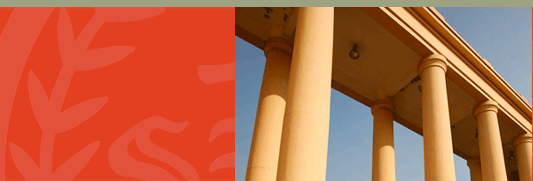The coordinated effort of a number of influential SISU leaders and scholars led to the development of an institute dedicated to teaching, research, publishing and outreach focused on developing this discipline. The historical influences behind these steps are discussed in the preceding essay. Both university leaders and those teaching IC noted that the program was growing, being well received, and needed more institutional support if it was to continue to develop.
As Prof. Kulich worked closely with Dr. Zhang Hongling to develop the teaching and research of IC, purchase books and materials, and seek to meet the growing needs of the expanding university and interest in the field, they began talking about how developing a dedicated center might shore up these foundations, strengthen the field, and better serve students and the university. This idea was further encouraged with the concurrent launch of the CAFIC, Shanghai Branch (at the 5th CSFIC in Xiangtan in 2003), where each university in Shanghai teaching IC was encouraged to develop a center highlighting its unique contribution. Zhang Hongling, Yu Zhaohui, Chi Ruobing and Steve Kulich worked together to develop an initial draft for such an intercultural center in early 2005.
This center proposal coincided with Wu Youfu’s and the SISU leadership’s new emphasis on strengthening our position as an internationalizing, interdisciplinary, research university. That draft was positively received and upgraded to establish the SISU Intercultural Institute (SII) which was officially announced on September 23, 2006 at the SISU International Intercultural Research Symposium. The current staff members (Kulich & Chi) were appointed and the SII was legally constituted January 23, 2007, beginning to operate out of its new offices since March 2007.
The objectives of the SII are consistent with SISU’s guiding principles toward establishing a active and creative platform for the academic training and human development of internationalized graduates who strive to integrate and optimize their foreign language skills and academic specializations to become highly motivated, quality contributors to their respective areas of employment or service in society (according to the university motto, pursuing “personal integrity and academic excellence”). Toward these aims, it also seeks to cooperate with and cultivate participating faculty in their own personal, cross-cultural, instructional and research development.
The SII thus also seeks to promote effective communication and deeper collaboration in the growing IC discipline across our campus, and among professors and experts within and beyond China. As stated by the director, “the institute seeks to provide diverse opportunities to serve as a ‘cultural bridge’ and further the intercultural and interpersonal aspects of ‘people development’ toward enhancing ‘world citizens’ engaged in and contributing to our ‘global village’ (Kulich, 2009).
>>Continue with the next page
>>Return to the SII History & Status lead page

